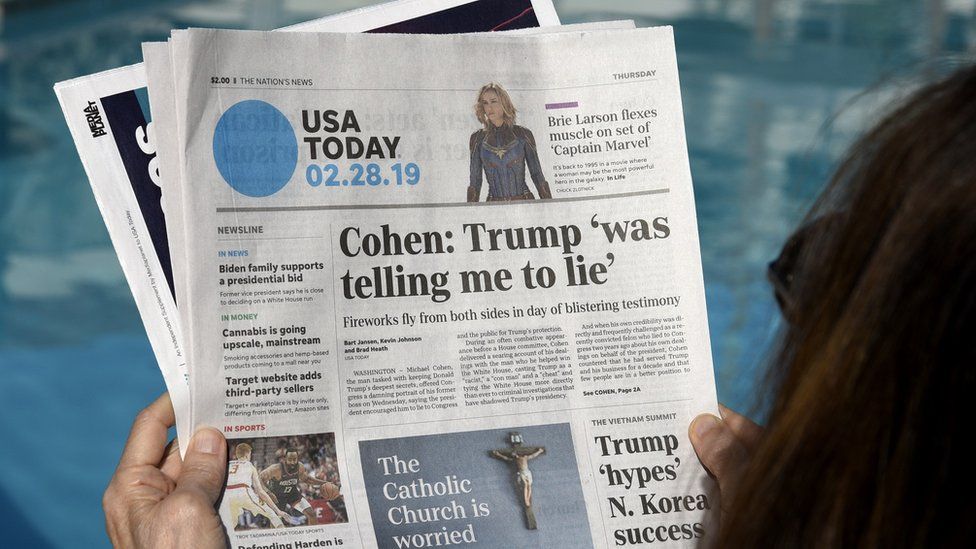FBI sought info on who read USA Today news article for caseon June 5, 2021 at 2:08 am
The USA Today newspaper is resisting an FBI demand to hand over data on readers of its story.

image copyrightGetty Images
The FBI sought information about readers of an online article as part of an investigation, it has emerged.
The agency demanded the newspaper USA Today hand over records on who had read an article about the killing of two FBI agents.
The newspaper’s owner is resisting the request and asked a judge to quash the demand.
It says the FBI’s demand is a “clear violation” of protections to press freedom.
The FBI issued a subpoena – an order to submit evidence – to USA Today’s owner Gannett, asking it for information about anyone who clicked on an article published in February about the fatal shooting of two of the bureau’s agents in Florida.
The subpoena sought the IP addresses and phone numbers for readers of the piece during a 35-minute window. IP addresses can be used to find a computer’s location and owner.
“The information sought through this subpoena relates to a federal criminal investigation being conducted by the FBI,” the order reads.
Gannett is asking a court to cancel the subpoena, saying it breaches the first amendment of the US constitution, which protects the free press from government interference.
“Being forced to tell the government who reads what on our websites is a clear violation of the first amendment,” said Maribel Perez Wadsworth, USA Today’s publisher.
“The FBI’s subpoena asks for private information about readers of our journalism.”
Ms Wadsworth said the the FBI’s order broke the justice department’s guidelines on the “narrow circumstances” in which the government can subpoena reporters.
Although Gannett’s lawyers had tried to contact the FBI, the agency had not provided it with an explanation for the subpoena, she added.
Gannett’s lawyers say the order is “unconstitutional”, and invades the rights of both the news organisation and its readers, citing a Supreme Court judgement that said: “A requirement that a publisher disclose the identity of those who buy his books, pamphlets or papers is indeed the beginning of surveillance of the press”.
The justice department has already been facing criticism after it emerged that under ex-President Donald Trump officials secretly obtained the phone records of Washington Post journalists. Media outlets and press freedom campaigners said such tactics could limit reporters’ abilities to gather information about the government.
In 2013, federal investigators secretly seized two months of phone records for Associated Press journalists, which prompted criticism of Mr Trump’s predecessor, Barack Obama.
The BBC has contacted the FBI for comment.
